
by Stone Marshall | Aug 12, 2018 | Awesome Book News, Free, Intro, Minecraft News, Minecraft questions, news, parent-news, State of Stone, Stone Marshall Book News, Stone Marshall Books, Stone Marshall Club, Stone Marshall Minecraft Adventures, Uncategorized |
It would have cost $3 million to allow Cavill to take time off from Mission: Impossible filming to reshoot Justice League cleanly shaven.
Last year, Henry Cavill’s Mission: Impossible moustache hit the headlines after the actor was told to shave it off for Justice League re-shoots whilst he will still filming for Mission: Impossible.
The producers of Mission: Impossible, Paramount Pictures, refused to allow Cavill to shave his moustache for reshoots as a cleanly shaven Superman.
Cavill has played Superman in three DC films to date, 2013’s Man of Steel, Batman v Superman: Dawn of Justice (2016) and last year’s Justice League.
Warner Brothers were instead forced to remove Cavill’s moustache via CGI in post-production. However, in the resulting film, Cavill’s upper lip was blurry, with many fans noticing the strange effects.
Now, in an interview with Empire’s Film Podcast, Mission: Impossible – Fallout director Christopher McQuarrie has revealed what exactly happened between Warner Brothers and Paramount over the moustache debacle.
McQuarrie first described what happened when Justice League’s director, Charles Roven, called him. “[He said] we need your help and we need to shave Henry’s moustache. We need him to come back and we need to do these reshoots.”
New Batman film will not be an origin story, says director
His response to Roven was to help initially: “I went and spoke to Jake Myers [Mission: Impossible – Fallout producer] and the suggestion was made through channels that we shave the moustache and Henry could begin to grow the moustache back and that…they would give us the resources to digitally fill in Henry’s moustache.”
McQuarrie reportedly did not want Cavill to use a fake moustache because of the type of camera – 75mm – that the film was shot on. He said: “a fake-moustache in close-up on a 75mm lens is never going to look like anything but a fake moustache.”
Myers went away to calculate the cost of replacing the shots and the figure came in at an eye-watering $3 million.
McQuarrie agreed to accept the $3 million and shut down the production of Mission Impossible to allow Cavill the time needed to regrow the moustache. However, Paramount had other ideas.
“Somebody from Paramount Pictures said: ‘What is going on? What are you people even talking about? There’s no way we’re going to do that,” McQuarrie explained. “We were just like, ‘Okay. That was the best plan we could come up with.”
Earlier this year, Cavill paid tribute to his moustache after it was shaved off via a tongue-in-cheek Instagram clip.
Earlier this month in an interview with NME, Simon Pegg spoke about the drama behind the moustache. You can watch what he said here:
Read more at https://www.nme.com/news/heres-true-cost-henry-cavills-cgi-moustache-2363020#sXAML8mM5dOtFu8y.99
Justice League failed to make significant headway at the Box Office, despite it’s huge $300 million budget.
Read more at https://www.nme.com/news/heres-true-cost-henry-cavills-cgi-moustache-2363020#sXAML8mM5dOtFu8y.99
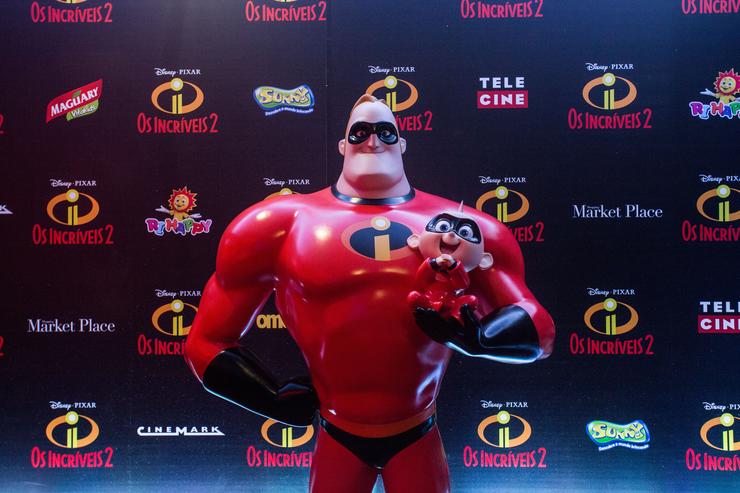
by Stone Marshall | Aug 11, 2018 | Awesome Book News, Free, Intro, Minecraft News, Minecraft questions, news, parent-news, State of Stone, Stone Marshall Book News, Stone Marshall Books, Stone Marshall Club, Stone Marshall Minecraft Adventures, Uncategorized |
“Incredibles 2” continues to soar.
Incredibles 2 is making a mockery of the box office. You would think Disney was satisfied with owning the box-office for most of the year (Black Panther, Avengers: Infinity War, and let's not forget Star Wars: The Last Jedi was still in theaters in January). It doesn't look like their stranglehold on the box-office will cease anytime soon though. Their line-up for the rest of the year includes a Wreck-It Ralph sequel, a Marry Poppins sequel, and Christopher Robbins.
Incredibles 2 had a record-breaking opening weekend, raking in $180 million. Now, it is being projected that the animated film will cross the $500 million mark. Currently, Incredibles 2 is sitting at $693 million grossed globally. $485 million of that number can be attributed to domestic sales. According to The Wrap, Incredibles 2 will surpass $500 million domestically this weekend, making it the highest grossing animated film in the US. The top ten highest grossing domestic films do not currently feature any animated films, so if Incredibles 2 can crack $533 million, it will beat out Star Wars: Rogue One for the tenth spot. The first Incredibles film grossed $384 million (when adjusted for inflation), making the sequel more successful before it even leaves theaters. We can probably expect an Incredibles 3 some time in the future.
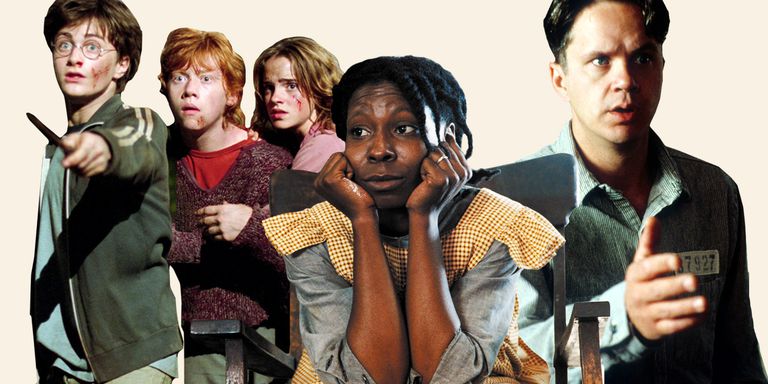
by Stone Marshall | Aug 11, 2018 | Awesome Book News, Free, Intro, Minecraft News, Minecraft questions, news, parent-news, State of Stone, Stone Marshall Book News, Stone Marshall Books, Stone Marshall Club, Stone Marshall Minecraft Adventures, Uncategorized |
Inspiration for movies comes from many places: plays, songs, true stories—even the occasional app can inspire a screenwriter and motivate a studio. But books remain the most frequently visited well for cinematic inspiration. Of the hundreds of movies based on books, here are the ten best.
The Shawshank Redemption (1994)
Based on: A 1992 novella by Stephen King entitled “Rita Hayworth and the Shawshank Redemption.”
Back cover blurb: Andy Dufresne (Tim Robbins) is convicted of the murder of his wife and her lover. He claims he is innocent. The film follows Andy as he tries to survive cruel Shawshank State Penitentiary. He's helped and counselled by fellow prisoner, Red, played by Morgan Freeman in an Oscar-nominated performance.
Key difference: Red is an white Irish man in the book, while in the film Freeman's character jokes that he is Irish.
This will be on the test: The King novella also included the source material for the films Apt Pupil and Stand By Me.
Harry Potter and the Prisoner of Azkaban (2004)
Based on: The book of the same name by J.K. Rowling, the third in her wildly popular Harry Potter series.
Back cover blurb: Harry Potter (Daniel Radcliffe) spends his third year at Hogwarts School of Witchcraft and Wizardry tracking the mysterious story of Sirius Black (Gary Oldman), an ally of He Who Must Not Be Named and a prisoner in Azkaban.
Key difference: The Marauders and their map play a huge role in both the book and the movie, but their backstory and the ways that the map is used differ slightly on-screen.
This will be on the test: After Richard Harris, who played Dumbledore in the first two Harry Potter films, passed away, Ian McKellen was offered the role, but turned it down.
Gone Girl (2014)
Based on: The 2012 beach read classic by Gillian Flynn.
Back cover blurb: Amy Dunne (Rosamund Pike), who has a seemingly perfect suburban life and the seemingly perfect childhood—as illustrated in a successful line of books written by her parents—suddenly disappears and all eyes are on her shady husband Nick (Ben Affleck).
Key difference: Though they still author the Amazing Amy books in the film, Amy's parents play a much smaller role in David Fincher's film. Nick's dad, who also plays a big role in the book, is barely seen on-screen.
This will be on the test: Reese Witherspoon produced the film and intended to play Amy, but withdrew from casting contention after chatting with director David Fincher about his vision for the role.
The Color Purple (1985)
Based on: Alice Walker's searing and seminal 1983 novel.
Back cover blurb: Celie (Whoopi Goldberg) writes letters detailing her often painful life in rural Georgia, her separation from her sister, Nettie (Akosua Busia), her relationships with her husband's son's wife, Sofia (Oprah Winfrey), and her husband's sometimes-mistress, Shug (Margaret Avery).
Key difference: The book delves even deeper into the inner lives of the women in Celie's life and paints a more complex picture of the relationships they share.
This will be on the test: This was Whoopi Goldberg's first film and she received her first Oscar nomination for it.
Atonement (2007)
Based on: Ian McEwan's 2001 metafictional novel.
Back cover blurb: Precocious and imaginative Briony (Saoirse Ronan) stumbles upon her sister (Keira Knightley) and her boyfriend (James McAvoy) in an intimate moment. Briony misinterprets what's happening, setting in motion a tragic chain of events that affects them all for years.
Key difference: McEwan's book is deliciously cerebral and interior, giving the characters' conflicts, questions, and changes vigorous life. Joe Wright's film must externalize these inner workings and uses a spare, lush cinematic language to do so.
This will be on the test: The book Atonement is based on another book, Henry James' What Maisie Knew.
The Wizard of Oz (1939)
Based on: L. Frank Baum's 1900 book The Wonderful Wizard of Oz.
Back cover blurb: Kansas farmgirl Dorothy (Judy Garland) is transported by tornado to a magical land where she immediately murders someone and steals her shoes. She then forms a gang and sets off to storm a city with a list of demands for the local wizard.
Key difference: Dorothy's iconic ruby red slippers were silver in the book.
This will be on the test: The horses in Emerald City were colored with Jell-O crystals.
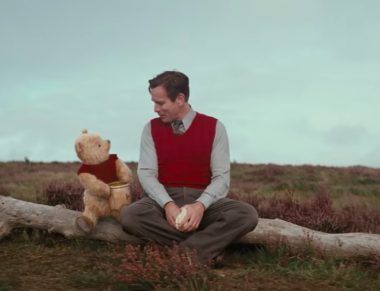
by Stone Marshall | Aug 10, 2018 | Awesome Book News, Free, Intro, Minecraft News, Minecraft questions, news, parent-news, State of Stone, Stone Marshall Book News, Stone Marshall Books, Stone Marshall Club, Stone Marshall Minecraft Adventures, Uncategorized |
A late-summer dessert entry atop Disney’s already hearty year, Christopher Robin is a property throwback in the vein of David Lowery’s Pete’s Dragon, or Spike Jonze’s Where the Wild Things Are. Frankly, however, it has little of the former’s heart, and all the showy stylistic trappings of the latter. It feels less like a cherry than a big bowl of oatmeal, really. Bland. Gray. A little sticky. It’s salvageable in spots with lotsa hunny – if you really dig for any noticeable flavor – but even then, it’s still just serviceable. Yes, we’re still talking about Christopher Robin.
Christopher Robin takes A.A. Milne’s works about a boy and his bear, and simultaneously modernizes and retrogrades the experience. Du jour in visuals, vintage in its studio feel-goodies. You know Pooh, and his predilection for the ‘hunny’. Fewer may know that Christopher Robin Milne was the name of Milne’s son, and the world of Pooh was inspired by real toys. (You’re welcome at your next bar trivia night.) Now Marc Forster (Monster’s Ball, World War Z) has been tasked with styling a new angle on the blonde bear through a modern lens. In the end, it just doesn’t work, and Forster’s sensitive style has nothing to add beyond aesthetics for aesthetics’ sake.
Robin is now the lead. No longer a tot, he’s played by a shockingly unconvincing Ewan McGregor. It would be unfair to say that the Scottish actor isn’t trying, because the material isn’t up to snuff, and he’s perhaps growing weary of having to work off digital partners after years of War in the Stars. McGregor’s Robin is different, a military veteran. Robin fights in WW2, comes home a luggage businessman, and is on the verge of destroying his family. In shorter terms, he’s played with a stick up the ass. Robin must save his staff from layoffs through the power of accounting and charts, but at the cost of alienating his estranged wife Evelyn (Hayley Atwell) and daughter Madeline (Bronte Carmichael). Christopher Robin? A corporate stiff?
Robin needs his groove back, and only Pooh and crew can renew it in poor “Cristofer Robem.” Perhaps the best word for this characterization is “insincere”? McGregor, an amiable lead in general, is stuck with nominal dialogue, flat intonation, and smiles and moments of longing that never feel earned. Think of it as an overlong take on the little tragedies of Andy growing up in Toy Story 3. Forster never really mines the actor or the heavily stitched-together screenplay for more than mannered cliche.
Pooh, Piglet, Eeyore, Tigger, Kanga, Roo, and Owl are back and articulated with CGI to look alive. Forget the bright yellow-and-red style of Disney cartoons past; he’s been upgraded to a fully-rendered, photorealistic, handsomely budgeted novelty. Like a marionette with no strings. Winnie the Pooh is still a bear, but he’s button-eyed, texturally faded, and lurches along with limited movements in actual reality, interacting with real trees and real jars of hunny. Owl and Rabbit are straight out of Babe, with flapping lips and wide, cartoonish eyes. Perhaps it’s all computer-animated, but the goal is realism here. The effect is curiously jarring, and even a little droll. Pooh’s design is admittedly a nifty conceit to reinforce the film’s themes of the faded past, and the visual effects are nothing to snooze at. However, Pooh is still voiced by Disney mainstay Jim Cummings, because this movie never wants to go too far into the realm of the new. (And look, for fans, it does admittedly give off a feeling of warm fuzzies.)
Through the powers of a cracked jar of hunny, Pooh and Robin reconnect so that Robin can find his inner child, or some such Tony Robbins bumper sticker slogan. The film is pitched at something approximating magical realism, a layer of sparkle atop organic things, and it sounds like a great pitch. Pooh ambling about in his forest with crackling leaves and endlessly glowing lens flares. But Robin neither commits to nor excels in exploring the value of that blend. “What if Pooh but grittier?” seems to be the logline.
Forster struggles to find a tone. There’s an overt, forceful naturalism at work – handheld camera, effusive insert shots straight out of Super Bowl car commercials – that suggests a filmmaker attempting the texture of a short story. It’s bold, if rocky. But it’s at odds with the play and imagination that Milne’s comfort creatures bring. Never could one imagine an explosion in a Pooh film, yet here we get one to enforce the hardening of Robin in war. Halfway through, Forster lands on something staid and feel-good and oh-so-very Disney: a race to rescue Robin from a Very Big Meeting. Still in that crunchy, Earthy style, though.
It took five separate writers (including indie magnate Alex Ross Perry, Tom McCarthy of Spotlight, and Allison Schroeder of Hidden Figures) to come up with that? Maybe that’s partly to blame: so much punch-up that the film ironically removed so much of its feeling and liveliness. Robin must regain the trust of his past pals, revitalize his dusty Hundred-Acre-Wood, fix his family, save his job, and find time to convincingly sell Ewan McGregor smiling at CG creations. Oh, bother, indeed. While it may be inoffensive enough , we’ve seen what adventurous filmmakers can do with old material like Lowery’s Dragon remake, or Jon Favreau’s full-blooded take on The Jungle Book. Kids and parents have to watch these things, too, so make it worthwhile.
Not all is lost, though. Brad Garrett’s Eeyore is pitch-perfect, complete with great zingers in a dour key (“Looks like a disaster. Shame I wasn’t invited.”) Cummings, the man behind both Pooh and Tigger for nearly 30 years, still has it: a sweet inflection and endless amiability. The pleasure of good company is Robin’s occasionally winning quality. Parents will make it through this, but they’ll be left wondering what the point of all this remixing was. Children … well, one surmises the desaturated look and low-key story will leave them puzzled – kids are more receptive than you think. Like oatmeal, you won’t be mad, but it’s not gonna be the best or most exciting meal you’ll have this year. Again. Talking about Christopher Robin.
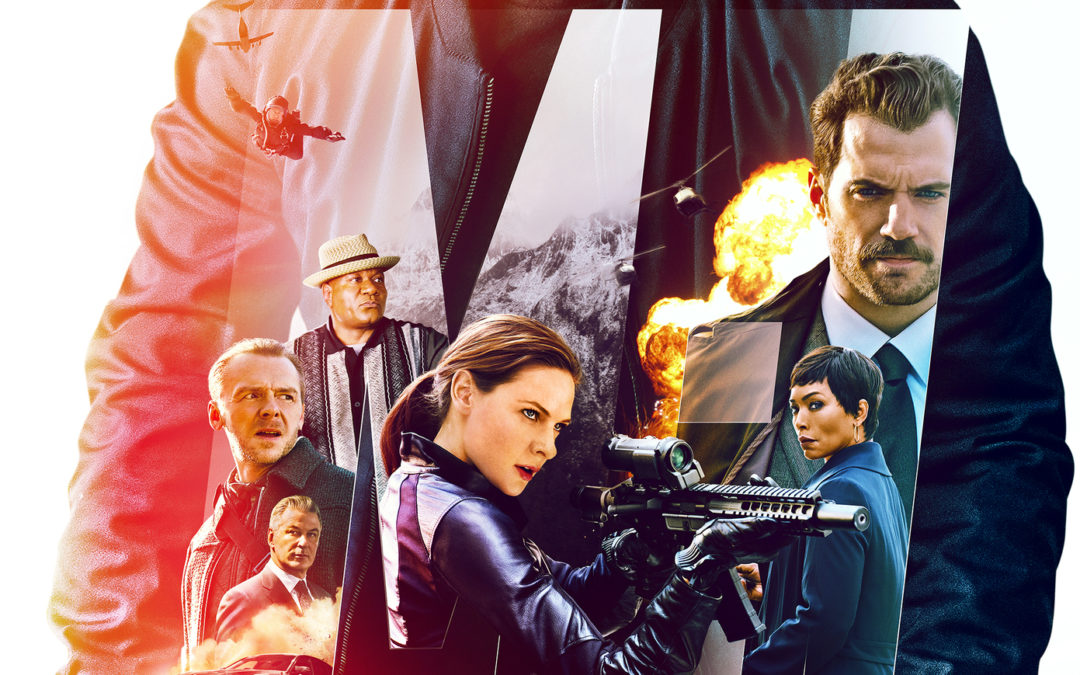
by Stone Marshall | Aug 10, 2018 | Awesome Book News, Free, Intro, Minecraft News, Minecraft questions, news, parent-news, State of Stone, Stone Marshall Book News, Stone Marshall Books, Stone Marshall Club, Stone Marshall Minecraft Adventures, Uncategorized |
Tom Cruise will prevail again at North American multiplexes this weekend with “Mission: Impossible — Fallout,” heading for an impressive $32 million second weekend, early estimates showed Friday.
Disney’s live-action “Christopher Robin” is heading for second place with a respectable $28 million at 3,602 screens. Lionsgate’s action-comedy “The Spy Who Dumped Me” will finish third with about $11 million. Fox’s opening of dystopian sci-fier “The Darkest Minds” is launching inauspiciously with about $7 million at 3,127 locations and will battle a trio of holdovers for fourth place — Universal’s third weekend of “Mamma Mia! Here We Go Again,” Sony’s fourth weekend of “Hotel Transylvania 3: Summer Vacation,” and Sony’s third weekend of “The Equalizer 2.”
Dinesh D’Souza’s pro-Donald Trump documentary “Death of a Nation: Can We Save America a Second Time?” is performing in line with forecasts of about $3 million at 1,002 locations this weekend for Quality Flix.
“Mission: Impossible — Fallout,” the sixth film in the Paramount franchise, is screening at 4,395 sites and declining less than 50% from its opening weekend of $61.2 million. The action-thriller is also performing better than 2015’s “Mission: Impossible — Rogue Nation,” which won its second weekend over “Fantastic Four” with $28 million. “Fallout” should wind up the weekend with about $122 million in its first 10 days.
“Christopher Robin” took in $1.5 million in Thursday night previews, topping Disney’s “A Wrinkle in Time,” which opened with $1.3 million in Thursday previews and went on to a $33 million opening weekend in March.
“Christoper Robin,” based on the characters from A.A. Milne’s Winnie the Pooh books, hopes to draw nostalgia lovers and their children when it opens on 3,602 screens Friday. Ewan McGregor plays a sad adult version of Winnie the Pooh’s old pal Christopher Robin, so Pooh, Piglet, Tigger, and Eeyore come to life to help him regain his imagination. Reviews have been mixed to positive with a 63% score on Rotten Tomatoes.
Lionsgate-Imagine’s “The Spy Who Dumped Me” opens at 3,111 venues and stars Mila Kunis and Kate McKinnon as best friends pursued through Europe by assassins. Susanna Fogel directed and co-wrote with David Iserson, while Justin Theroux, Gillian Anderson, Hasan Minhaj, and Sam Heughan round out the cast. “Spy” carries a 39% rating on Rotten Tomatoes.
Prospects are downbeat for Fox’s “The Darkest Minds,” which opens on 3,127 screens. The movie, which carries a $34 million price tag, is based on Alexandra Bracken’s novel and set in a dystopian America where a group of teenagers is on the run from the government after mysteriously obtaining superpowers. The film stars Amandla Stenberg, Mandy Moore, and Gwendoline Christie. Reviewers have been underwhelmed with a Rotten Tomatoes score of 15%.
With the top two films combining for about $60 million, overall domestic moviegoing should be up significantly over the same 2017 weekend, which was led by “The Dark Tower” with $19 million in its debut — marking the start of one of the slowest Augusts in more than a decade. Summer domestic box office is up a hefty 10.4% to $3.46 billion as of Aug. 1, according to comScore, and year-to-date domestic box office is also leading last year by 7.6% at $7.4 billion.
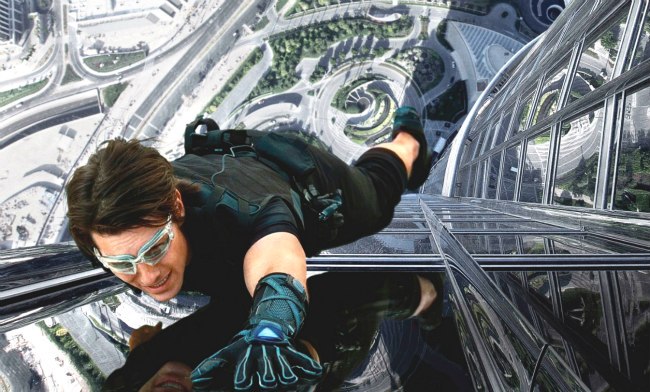
by Stone Marshall | Aug 9, 2018 | Awesome Book News, Free, Intro, Minecraft News, Minecraft questions, news, parent-news, State of Stone, Stone Marshall Book News, Stone Marshall Books, Stone Marshall Club, Stone Marshall Minecraft Adventures, Uncategorized |
As Ethan Hunt, Tom Cruise has scaled the world’s tallest building, held his breath underwater for over six minutes, shattered his ankle in a rooftop chase, and grasped for dear life on the side of the airplane during takeoff. But those are all appetizers for the inevitable main course in the Mission: Impossible film series: [extremely “Pigs In Space” voice] TOM. CRUISE. IN. SPACE.
While promoting the latest M:I installment, the wildly fun Fallout, Cruise revealed that he’s “thought about” traveling to space. “It’s like how do we do it? It’s the mechanics of getting it there,” he said. “How do you build a sequence there and how long can we have that sequence? Because if I went up and just dropped, how do you put that into the structure of a screenplay of a mission?”
Before watching Fallout, I binge-watched all the Mission: Impossible movies, and while doing so, I couldn’t help but wonder: who would win in a fight, the Mission: Impossible crew (Ethan Hunt, Ilsa Faust, Benji, and Luther Stickell) or the Fast and Furious team (Dominic Toretto, Hobbs, Shaw, Letty Ortiz, Roman Pearce, and Tej Parker). Fast and Furious has the numbers and brute strength, but Mission: Impossible has Tom Cruise, so… Anyway, after reading Cruise’s comments, I’m curious about something else: which movie will travel to space first? It’s the new SPACE RACE, but with more Corona and exploding gum.





